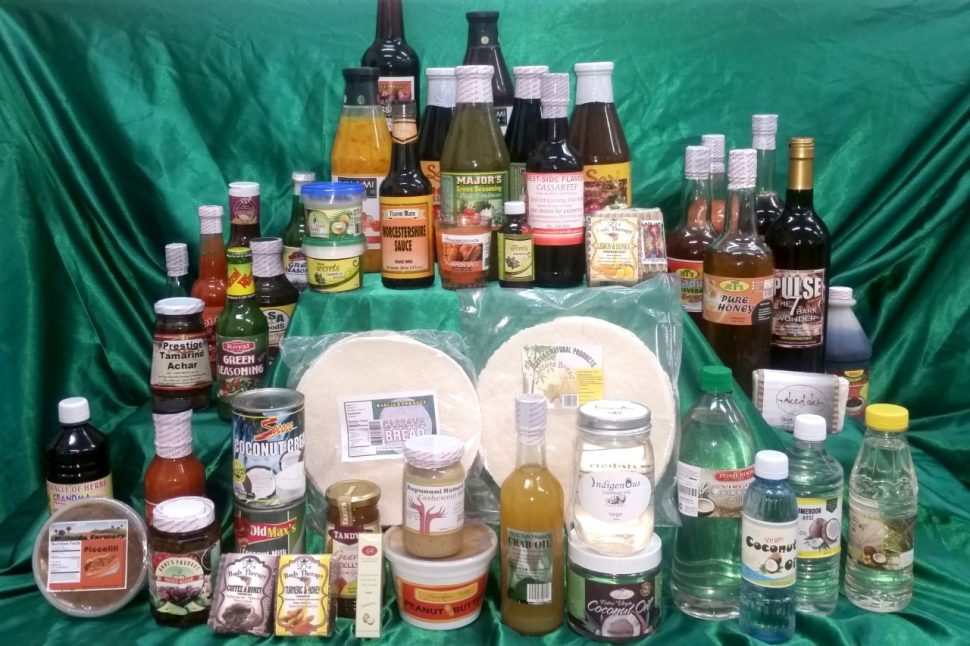An increasingly vociferous group of emerging (mostly women) agro-processors have told Stabroek Business that government must actively lobby for the removal of regional trade barriers to their products since Guyana continues to be an open market for regional products.
They asserted that this was apart from both the direct and indirect support of the government for the growth of the sector specifically through supporting a lobby for more generous lending terms for investment and providing direct financial backing for the importation of machinery that can improve the efficiency of the production side of their operations
There was also reaction to last week’s comment from local coffee producer, Louis Holder, regarding what he believes is the dichotomy between the recent introduction of more than 50 new imported food products on the Guyana market by the Trinidad and Tobago distributor ANSA McAl and the barriers preventing local products from accessing markets in that country. The local agro-producers told this newspaper that a point had now been reached where the government must do more to demonstrate their commitment to helping to open up regional markets for local agro produce.
“We have done everything that we have been asked to do…from registering our businesses, getting food safety compliance and investing in expensive packaging and labelling. All of these things have come at a cost and, yes, we are hoping for a payback in terms of getting access to markets in other CARICOM countries as far as we’re concerned,” one of the participants in the discussion with this newspaper said.
While the Small Business Bureau (SBB) which has been providing grants and bank financing facilitation services to small and medium scale agro-processors came in for fulsome praise from the group “for its modest contribution,” the group was of the view that the $300,000 SBB grant ceiling was “hopelessly inadequate” to finance a worthwhile agro-processing setup. “Sometimes you feel as though we are being asked to remain small businesses for all of our lives. What hurts is that the attitude of some of the banks cause us to feel that what we are doing is really not being taken too seriously ‘by those who matter’”.
Insisting that theirs is a cry for help for the agro-processing sector rather than an attack on the authorities, the group is of the view that small agro-processors have now done enough to warrant the creation of a state agency designed to serve as a one-stop shop to meet their various needs. Contextually, they cited the challenges associated with the packaging and labelling of products including the costs associated with reaching the standards which the export market requires.
“If you compare what obtains now with even five years ago you will find that there has been a great improvement. Many of us have done what we have been asked to do in terms of improving our packaging and labelling. We have done these things without any help. These days we face problems accessing containers for our products. Importing bottles and other packaging is costly because these have to be imported in large quantities. We have been saying for some time now that this is a matter for government intervention, government help,” another participant in the discussion said.
The group, which agreed to participate in the discussion on the condition that both they and their individual businesses remain anonymous, also spoke highly of the efforts of the Guyana Marketing Corporation (GMC) to provide training and to afford some measure of market access through the Guyana Shop. “To be frank while we are very grateful for the help that we get from GMC even that is not enough. There are limits to what the GMC can do and frankly we don’t want to be treated like small businesses for the rest of our existence,” another participant said.
While concerns over what was described as “prejudices” demonstrated by some local food outlets were raised there were differing points of view on this issue. One group felt that it was “to be expected” that the high-profile supermarkets would want to ensure that the products that are on their shelves are of a high standard.
Specifically, one of the discussants at the meeting said that insistence on higher product standards “would actually push us to do better…and when you look at where we are today, quite a few of our products are on the shelves of the bigger supermarkets. I believe that we have to work with them.” Other participants differed, expressing the view that the problem of local supermarket access stemmed from foreign taste-related prejudices. “They see it as a lowering of their standards when some local products are in the same space with the imported ones. We need policies to change this,” another contributor said.
Noting that agro-processing has provided employment for significant numbers of otherwise unemployed women, including single parents, another contributor expressed the view that the sector should be embraced more enthusiastically by government as a means of employment creation. “Agro-processing offers job opportunities that remove the need to depend on working with other people. That gives you a good feeling,” a young female agro-processor declared.
While the issue of creating a local agro-processing association did not arise at the meeting it was agreed that benefits could derive from agro-processors developing a collective agenda of issues for discussion with both government and the business sector as a whole.
Faced with the challenge of limited mass market exposure, the group was unanimous in its praise of the efforts of the Guyana Manufacturing & Services Association (GMSA) which, in collaboration with the Ministry of Business has now ‘patented’ the UNCAPPED event, a popular product display and marketing event to which agro-processors have significant access.
“Things like UNCAPPED need developing. It needs to be staged in the various regions so that we can have our products exposed to the entire country. More government funds should be invested in helping to make these events a success,” yet another agro-processor remarked.





